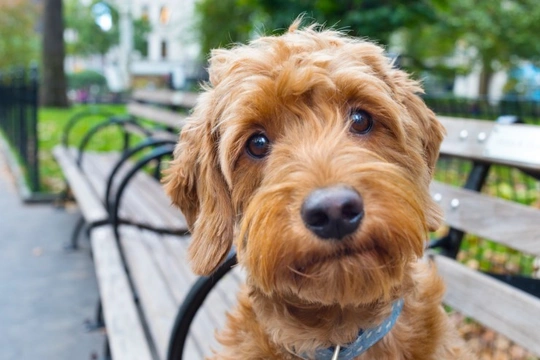
Getting to the bottom of why your dog is crying or whining
Dogs are fairly vocal animals and many of them bark frequently for no obvious reason, or simply to get your attention and make a noise. However, barking isn’t the only vocalisation dogs display, and crying or whining is another very common one, and some dogs will start to whine and make a fuss with very little encouragement, or as a regular indicator of their mood.
Crying or whining can of course indicate pain or distress, but most of the time if your dog is whining they’re absolutely fine, even if they don’t think so – such as if they’re ready for their walk and you’re taking too long to put your boots on, or if you’ve started rattling the food bowls and you’re not moving fast enough for your dog’s liking.
When you understand the various reasons for why dogs whine or cry, you have a much better chance of decoding the meaning of your own dog’s sounds, much as people who have raised children can usually tell from their own child’s cries if they’re hungry, hurt, or just grizzling!
In this article we will look at the most common reasons why dogs cry or whine, which will help you to decode what your dog wants and why in various different situations. Read on to learn more.
Frustration
Perhaps the most common cause of whining in the dog is frustration, and anything that frustrates your dog or makes them have to wait for something might result in the dog crying or whining!
This behaviour is likely to occur when your dog is in a rush to go for a walk or be fed, but in a lot of other situations too – such as if you’re training your dog and they don’t understand what you want, or they feel as if they’ve earned a reward that is not forthcoming.
Having to wait to be let outside, kept on a lead when other dogs are playing or anything that curtails your dog’s behaviour or keeps them from getting what they want can cause your dog to cry or whine from frustration, and because this tends to generate a reaction from us people, dogs communicate with us in this way quite often.
Stress , fear and anxiety
If your dog is stressed or unsettled, they might cry or whine from distress, and encourage you to reassure them in other ways such as by staying close by or pawing at you for attention.
Dogs look to the people that they trust for reassurance in frightening, stressful or confusing situations, such as if you’re out somewhere new, or if too much stimulus is upsetting your dog.
Reassure your dog but don’t pander to their fears, as this will reinforce them and worsen the issue.
Anticipation
Anticipation of food or a walk are likely to cause whining if your dog is frustrated, but they may also whine in anticipation too. If you’ve ever been to watch a canine sports competition like agility to flyball, you can often hear multiple dogs crying, whining and making a fuss from backstage before it is even their turn in the arena, in anticipation of what is to come. Actively exciting the dog and getting them wound up to perform sometimes plays a part in sports like flyball, and this usually involves some whining until you’re ready to let your dog have at it!
Needing to go outside
If your dog needs to go outside to do their business and you’re ignoring them or have failed to pick up on their cues, they are likely to head for the door and stay by it, scratching and pawing to go out an probably, whining or crying too.
Never ignore a dog that needs to go out, as this is unfair on the dog and is also likely to teach them not to bother giving you cues in future, resulting in accidents in the home!
Hunger
If your dog is hungry they will almost certainly cry and whine at anyone that they think might feed them, but if your dog cries or whines whenever food is around or particularly when you and the rest of the human family are getting ready to eat, they’re just being opportunistic and hoping to tug on your heartstrings!
Giving your dog a scrap to shut them up might seem like the path of least resistance, but this will only make the problem worse in the long run!
To garner attention
Our dogs condition us to respond to their needs, much as we do to our dogs – for instance, you soon come to recognise the cues your dog gives to go outside, as these cues help to avoid accidents in the home.
However, you can create a rod for your own back by responding with attention whenever your dog cries, resulting in a situation in which your dog cries or whines at you all the time when they’re not the centre of attention!
Pain or discomfort
It shouldn’t be overlooked that as well as all of the other reasons why dogs might cry or whine, they are also very likely to do so if there are uncomfortable or in any pain.
If your dog is crying to themselves, hiding and crying or doesn’t appear to be trying to get a need met or gain your attention, they may be hurt or feeling unwell, and this of course necessitates a trip to the vet to find out what is going on and correct it.



